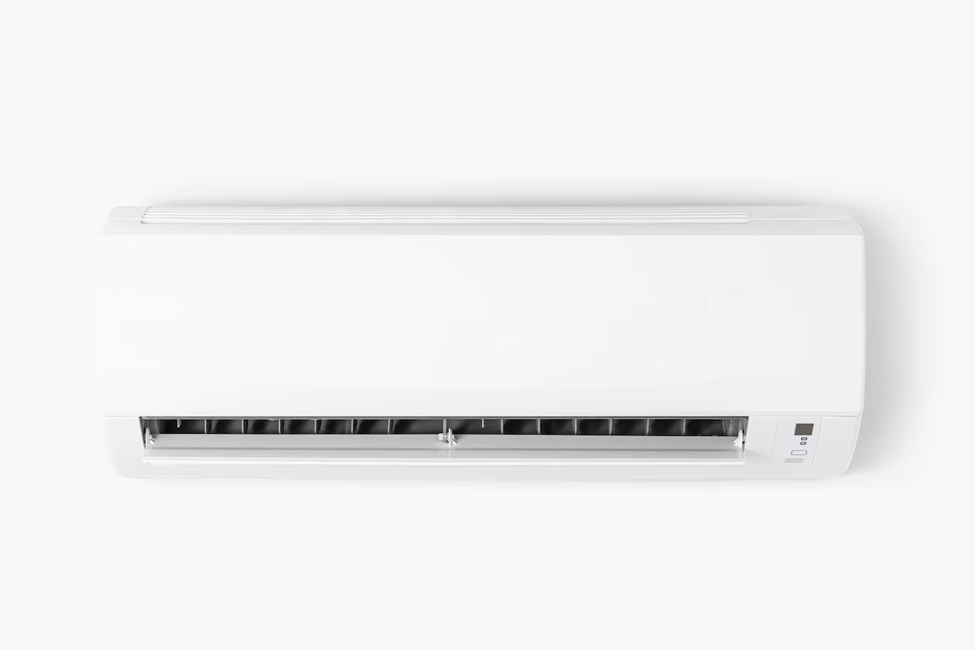Choosing the right air conditioning system for your home requires careful consideration when weighing all of your options. Whether you’re opting for a central air-conditioning system or something more localized like window units and portable fans, it’s important to research each option available so that you make the best choice possible without sacrificing quality and performance.
In this article, we will explore all aspects of choosing the right air conditioning system for your home, including budget considerations, energy efficiency ratings, sizing requirements, install costs, maintenance needs, and more. Let’s begin!
Benefits of Air Conditioning
Apart from regulating the temperature and humidity levels, air conditioning offers numerous benefits that can improve our health, productivity, and overall well-being. Here are the benefits you can enjoy from an air conditioning unit:
Improved comfort
Air conditioning can provide a cool and comfortable indoor environment, even in hot and humid weather conditions. It can also help regulate temperature and humidity levels, making it easier to maintain a comfortable and healthy living or working environment.
Better Air Quality
Air conditioning units often come with built-in air filters that can help remove pollutants, allergens, and other harmful particles from the air. This can help improve indoor air quality and reduce the risk of health problems associated with poor air quality.
Increased Productivity
Research has shown that people tend to work more efficiently in cooler environments. Air conditioning can help regulate the temperature in a workspace, which can result in increased productivity and better job performance.
Improved Sleep
Sleep is essential for good health, and a comfortable environment is key to getting a good night’s sleep. Air conditioning can help regulate the temperature and humidity levels in a bedroom, creating a more comfortable and conducive environment for sleeping.
Reduced Risk of Heat-Related Illness
Studies have found that air conditioning can reduce the risk of heat-related illnesses by up to 80%. This statistic alone highlights the immense importance of having a reliable and efficient AC system in your home. It can help reduce the risk of heat stroke, dehydration, and other heat-related illnesses, especially in vulnerable populations such as the elderly, young children, and those with chronic health conditions.
Preservation of Equipment and Materials
Many businesses rely on temperature-controlled environments to store equipment, inventory, and materials. Air conditioning can help maintain the proper temperature and humidity levels, which can help preserve these items and reduce the risk of damage or spoilage.
Incresed Property Value
Air conditioning is often considered an essential feature in modern homes and businesses. Installing a high-quality air conditioning system can increase the value of a property and make it more attractive to buyers or renters.
Types of Air Conditioning
Choosing the right air conditioning system for your home isn’t something to take lightly. The type of AC you select can have a direct impact on both comfort and energy efficiency. With that in mind, let’s walk through the different types available:
There are several different types of air conditioning systems that are used to provide cooling and comfort in residential, commercial, and industrial settings. Here are the most common types of AC systems homeowners choose:
- Window Air Conditioners: These are typically used in smaller spaces and can be mounted in a window or wall. They are relatively affordable and easy to install but may not be powerful enough to cool larger areas.
- Split Air Conditioners: These are composed of two separate units, one that is installed indoors and one that is installed outdoors. They are more expensive than window units but are more efficient and can cool larger areas.
- Central Air Conditioning: This type of system is commonly used in larger homes and commercial buildings. It cools the entire building through a network of ducts and vents. It is the most effective and efficient type of air conditioning system, but it can be expensive to install.
- Portable Air Conditioners: These are similar to window units but are designed to be moved from room to room. They are generally less expensive than split or central air conditioning systems but may be less effective at cooling larger areas.
- Ductless Mini-Split Systems: These systems are similar to split air conditioners but don’t require ductwork. They can be more expensive than other types of air conditioning systems but are highly efficient and can be a good option for homes or businesses without ductwork.
- Evaporative Cooling Systems: These systems use water to cool the air, making them ideal for dry climates. They are often used in outdoor spaces or large industrial buildings.
Each type of air conditioning system has its advantages and disadvantages, but the ultimate decision will rely on factors such as the size of the space, the climate, and the budget. Consulting with a professional HVAC technician can help you determine the most suitable air conditioning system for your needs.
Important Factors To Consider When Choosing an Air Conditioning Unit

1. Size
The size of the air conditioning system should be matched to the size of the space that needs to be cooled. A system that is too small will struggle to cool the space adequately, while a system that is too large will waste energy and increase costs.
2. Efficiency
3. Noise
Some air conditioning systems can be quite noisy, which can be a problem in certain environments. Consider whether noise levels are a concern and choose a system that is designed to operate quietly.
4. Cost
Air conditioning systems vary in cost, from relatively inexpensive window units to high-end central air conditioning systems. Determine your budget and choose a system that provides the best value for your money.
5. Maintenance
All air conditioning systems require regular maintenance to operate efficiently and effectively. Consider the maintenance requirements of each system and choose one that is easy to maintain and repair.
6. Climate
The climate in your region can also play a role in choosing an air conditioning system. For example, in hot and humid climates, a system with a high dehumidification capacity may be more effective at providing comfort.
7. Sustainability
Consider the environmental impact of the system you choose. Look for systems with energy-efficient features and eco-friendly refrigerants that have a lower impact on the environment.
Efficiency Ratings Of Air Conditioning Systems
Before choosing an AC unit, you need to weigh all the factors and consider which moves will give you the best results. Efficiency ratings are one important factor when it comes to selecting an A/C, so let’s take a look at how these ratings play into your decision:
- SEER Rating – This stands for Seasonal Energy Efficiency Ratio and is used to measure cooling performance over time;
- EER Rating – or Energy Efficiency Ratio, this rating looks at peak energy efficiency during periods of high demand;
- HSPF Rating – Heating Season Performance Factor measures heating performance in colder climates; and
- COP Rating – Coefficient of Performance assesses overall operating costs.
To understand how each of these ratings works together, think about them as tiers in a pyramid, with SEER being the base. The higher up on the pyramid you go, from SEER to COP, the more efficient (and expensive!) your A/C unit becomes.
When shopping around for an air conditioner or heater for your home, aim to get something that has a good balance between cost and efficiency across all four ratings mentioned above. You don’t want too much money going out before any return coming back!
Cost Of Air Conditioning Systems
The cost of air conditioning systems is like the waves in an ocean: it ebbs and flows, depending on the type and size. Symbolically, this represents how making a decision about which system to purchase for your home can be daunting. Nevertheless, armed with knowledge about efficiency ratings and costs, you are now able to make an informed choice.
One way to save money when shopping for an AC unit is by looking at energy-efficiency ratings or SEER (Seasonal Energy Efficiency Ratio). A higher SEER rating indicates that the unit will use less energy over time, reducing your utility bills. However, these units tend to have a higher initial cost. You may also consider purchasing a smaller unit if space permits, as they usually come with lower price tags than larger ones.
It’s important to note that additional factors, such as installation fees and repairs down the line, could influence the final tally. To ensure you’re getting your money’s worth out of the system, research reliable technicians so that any future maintenance requirements don’t break the bank.
Maintenance Requirements For Air Conditioning Systems
Once you have decided on the right air conditioning system for your home, it’s important to consider its maintenance requirements. An air conditioner requires regular upkeep and servicing to ensure optimal performance. Here are three key points to remember when it comes to maintaining an AC unit:
- Checking filters regularly: Air filters should be checked every month or two and replaced as needed. This helps keep dust particles out of the AC unit, improving efficiency and reducing wear and tear.
- Scheduling yearly tune-ups: Having a technician come in once a year is one of the best ways to maintain an AC system’s overall health. The technician will check all components, clean parts if necessary, and look for any potential areas that need attention.
- Regularly cleaning ducts & vents: Cleaning air ducts can help reduce energy costs by ensuring airflow throughout the house stays consistent while decreasing allergens in your living space. It also improves indoor air quality, which is highly beneficial for those with allergies or asthma.
Maintaining an efficient air conditioning system doesn’t just save you money and guarantees that your family will stay comfortable even during extreme weather conditions. Taking these steps now can help prevent costly repairs down the road, so make sure to follow through with them.
Conclusion
Finding and choosing the best air conditioning in Sarasota for your home can be overwhelming. With so many different types of systems and efficiency ratings to consider, it is important to take into account all factors before making a decision. From energy efficiency to cost, you are sure to find an AC that meets your needs without breaking the bank.
If you need help choosing the right air conditioning system for your home, our experts at Tropic Air Conditioning are here to help. Our team will be with you every step of the way, from choosing the perfect unit to installing and maintaining it over time. Contact us today!




